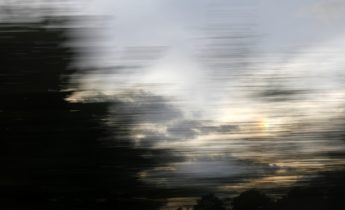Personal Details: Landwehr, Achim
Author
The PHW author list
Achim Landwehr, Dr. phil. (*1968), ist Professor für Geschichte der Frühen Neuzeit an der Heinrich-Heine-Universität Düsseldorf (seit 2008). Studium der Geschichte, Germanistik und Rechtswissenschaft an den Universitäten Augsburg, Freiburg, Basel und Dublin (1990-1995). Wissenschaftlicher Mitarbeiter am Max-Planck-Institut für Europäische Rechtsgeschichte in Frankfurt am Main (1996-1998). Postdoktorand am Graduiertenkolleg "Wissensfelder der Neuzeit" an der Universität Augsburg (1999-2000). Wissenschaftlicher Assistent am Lehrstuhl für Europäische Kulturgeschichte der Universität Augsburg (200-2003). Juniorprofessor für Europastudien an der Heinrich-Heine-Universität Düsseldorf (2003-2008). Forschungsschwerpunkte sind europäische Geschichte des 17. Jahrhunderts, Kulturgeschichte und Geschichtstheorie.
Achim Landwehr, PhD (*1968), is professor of early modern history at the Heinrich-Heine-University Düsseldorf. Studies in history, German literature, and law at the universities of Augsburg, Freiburg, Basel und Trinity College Dublin (1990-1995). Doctorate at the Max-Planck-Institute of European Legal History, Frankfurt/Main (1996-1998). Postdoc at the graduate college "Modern fields of knowlegde" at the University of Augsburg (1999-2000). Assistant at the chair of European Cultural History at the University of Augsburg. Assistant professor for European Studies at the University of Düsseldorf (2003-2008). Main research interests are the European history of the 17th century, cultural history and theory of history.
Official Website: University Düsseldorf
-
Why Public History?
Weshalb Public History?
Why Public History?
Reading German newspapers on November 9, often called the “German Day of Fate” on a train offers the opportunity to follow some loose thoughts on Public History and Historical Culture.
-
Time and History (in) of the Grand Coalition
Zeit und Geschichte (in) der Großen Koalition
Time and History (in) of the Grand Coalition
The new coalition agreement was closely examined with a view to so-called future issues. But it is also noteworthy with regard to Public History – and to the historical classification of the present.
-
In Search of the Lost Self – “Heimat” as Public History?
Auf der Suche nach dem verlorenen Selbst – Heimat als Geschichtskultur?
In Search of the Lost Self – “Heimat” as Public History?
When you try to free the Heimat from processes of historical transformation by just insisting on its history, then Heimat becomes a connotation that seeks to preserve something that has never existed.
-
The Reformation Jubilee. A Polemic
Das Reformationsjubiläum. Eine Polemik | Het reformatiejubileum. Een polemiek
The Reformation Jubilee. A Polemic
Unconcerned minds may fall prey to the idea – quite appropriate for a first intuition – that the Reformation jubilee has something to do with historical reassessment.